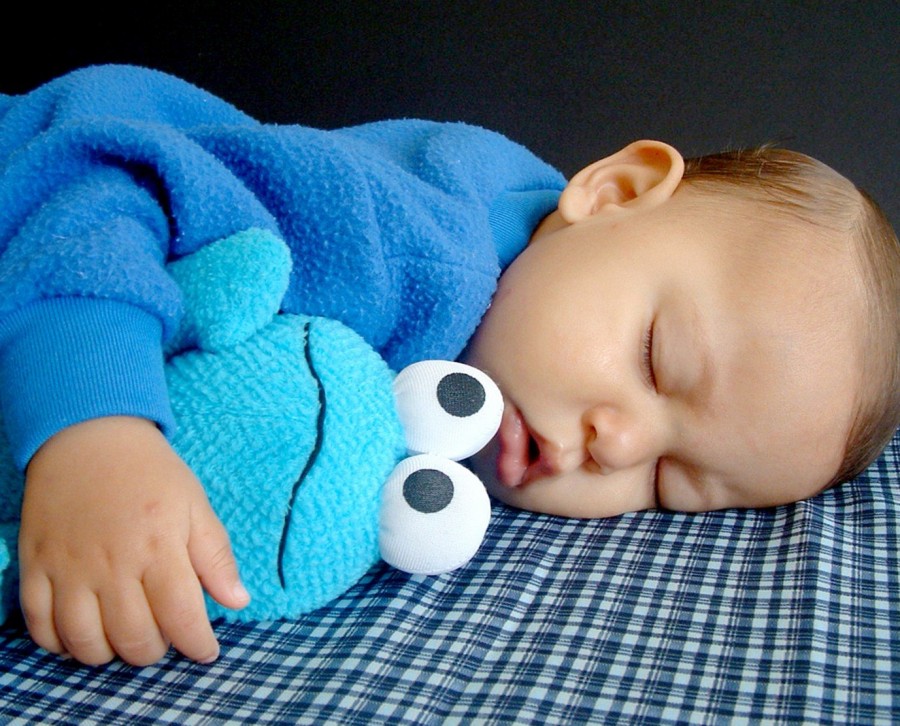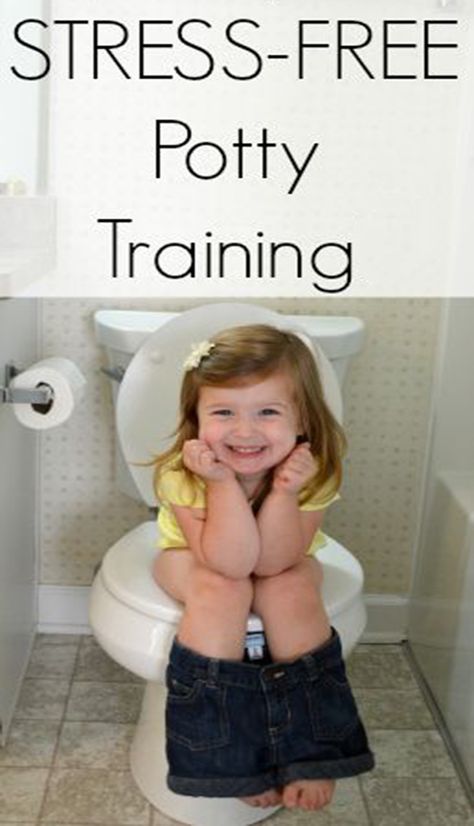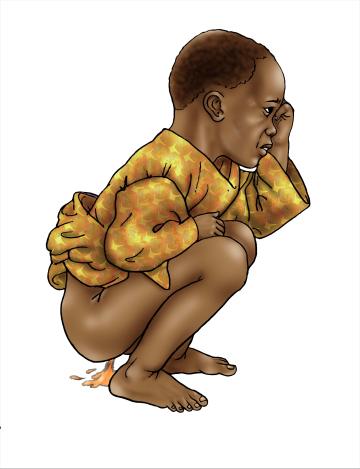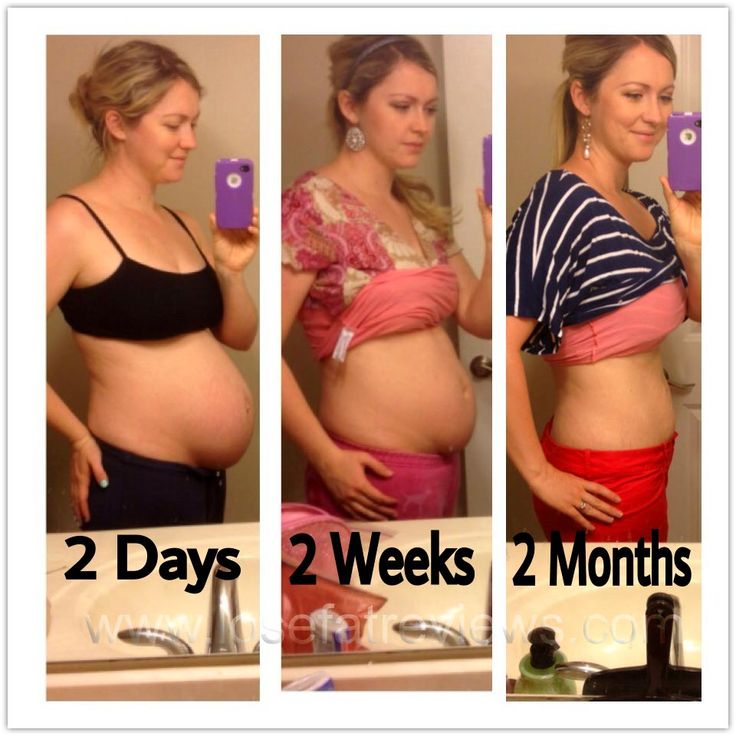Sleeping habits for babies
Baby sleep: what to expect at 2-12 months
Baby sleep needs
Babies need sleep to grow and develop well. But babies’ sleep needs vary, just as the sleep needs of older children and adults do. Your baby might be doing well with more or less sleep than other babies the same age.
Your baby’s mood and wellbeing is often a good guide to whether your baby is getting enough sleep. If your baby is:
- wakeful and grizzly, they might need more sleep
- wakeful and contented, they’re probably getting enough sleep.
How baby sleep changes from 2 to 12 months
As they get older, babies:
- sleep less in the daytime
- are awake for longer between naps
- have longer night-time sleeps and wake less at night
- need less sleep overall.
2-3 months: what to expect from baby sleep
At this age, babies sleep on and off during the day and night. Most babies sleep for 14-17 hours in every 24 hours.
Young babies sleep in cycles that last 50-60 minutes. In young babies, each cycle is made up of active sleep and quiet sleep. Babies move around and grunt during active sleep, and sleep deeply during quiet sleep.
At the end of each cycle, babies wake up for a little while. They might grizzle or cry. They might need help to settle for the next sleep cycle.
At 2-3 months, babies start developing night and day sleep patterns. This means they tend to start sleeping more during the night.
Around 3 months: what to expect from baby sleep
Babies keep developing night and day sleep patterns.
Their sleep cycles consist of:
- light sleep, when baby wakes easily
- deep sleep, when baby is sound asleep and very still
- dream sleep, when baby is dreaming.
Sleep cycles also get longer, which might mean less waking and resettling during sleep. At this age, some babies might regularly be having longer sleeps at night – for example, 4-5 hours.
Most babies still sleep for 14-17 hours in every 24 hours.
3-6 months: what to expect from baby sleep
At this age, most babies sleep for 12-15 hours every 24 hours.
Babies might start moving towards a pattern of 2-3 daytime sleeps of up to two hours each.
And night-time sleeps get longer at this age. For example, some babies might be having long sleeps of six hours at night by the time they’re six months old.
But you can expect that your baby will still wake at least once each night.
6-12 months: what to expect from baby sleep
Babies sleep less as they get older. By the time your baby is one year old, baby will probably sleep for 11-14 hours every 24 hours.
Sleep during the night
From about six months, most babies have their longest sleeps at night.
Most babies are ready for bed between 6 pm and 10 pm. They usually take less than 40 minutes to get to sleep, but some babies take longer.
At this age, baby sleep cycles are closer to those of grown-up sleep – which means less waking at night. So your baby might not wake you during the night, or waking might happen less often.
But many babies do wake during the night and need an adult to settle them back to sleep. Some babies do this 3-4 times a night.
Sleep during the day
At this age, most babies are still having 2-3 daytime naps that last for between 30 minutes and 2 hours.
6-12 months: other developments that affect sleep
From around six months, babies develop many new abilities that can affect their sleep or make them more difficult to settle:
- Babies learn to keep themselves awake, especially if something interesting is happening, or they’re in a place with a lot of light and noise.
- Settling difficulties can happen at the same time as crawling. You might notice your baby’s sleep habits changing when baby starts moving around more.
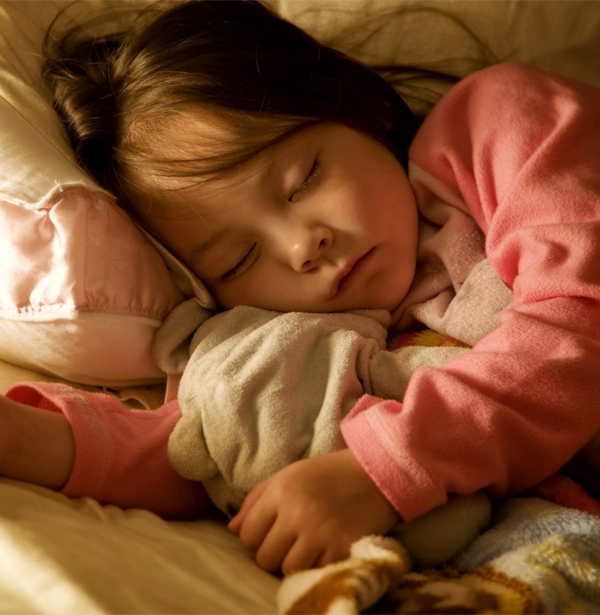
- Babies learn that things exist, even when they’re out of sight. Now that your baby knows you exist when you leave the bedroom, baby might call or cry out for you.
- Separation anxiety is when babies get upset because you’re not around. It might mean your baby doesn’t want to go to sleep and wakes up more often in the night. As babies mature they gradually overcome this worry.
6-12 months: night-time feeding
From around six months of age, if your baby is developing well, it’s OK to think about night weaning and phasing out night feeds. But if you’re comfortable with feeding your baby during the night, there’s no hurry to phase out night feeds.
You can choose what works best for you and your baby.
A rollover feed is a late feed somewhere between 10 pm and midnight. Some parents find that rollover feeds help babies sleep longer towards morning. If this works for you and your baby, it’s fine to give baby a rollover feed.
Concerns about baby sleep
If you’re concerned about your baby’s sleep, it can be a good idea to track your baby’s sleep for a week or so. This can help you get a clear picture of what’s going on.
This can help you get a clear picture of what’s going on.
You can do this by drawing up a simple chart with columns for each day of the week. Divide the days into hourly blocks, and colour the intervals when your baby is asleep. Keep your chart for 5-7 days.
Once completed, the chart will tell you things like:
- when and how much sleep your baby is getting
- how many times your baby is waking during the night
- how long your baby is taking to settle after waking.
You can also record how you tried to resettle your baby and what worked or didn’t work.
Then you can compare the information in your chart with the general information about baby sleep needs above:
- How does your child compare to other babies the same age? If your baby is wakeful and grizzly and getting much less sleep than others, your baby might need more opportunities for sleep.
- How many times is your baby over six months old waking up during the night? If it’s 3-4 times a night or more, you might be feeling very tired.
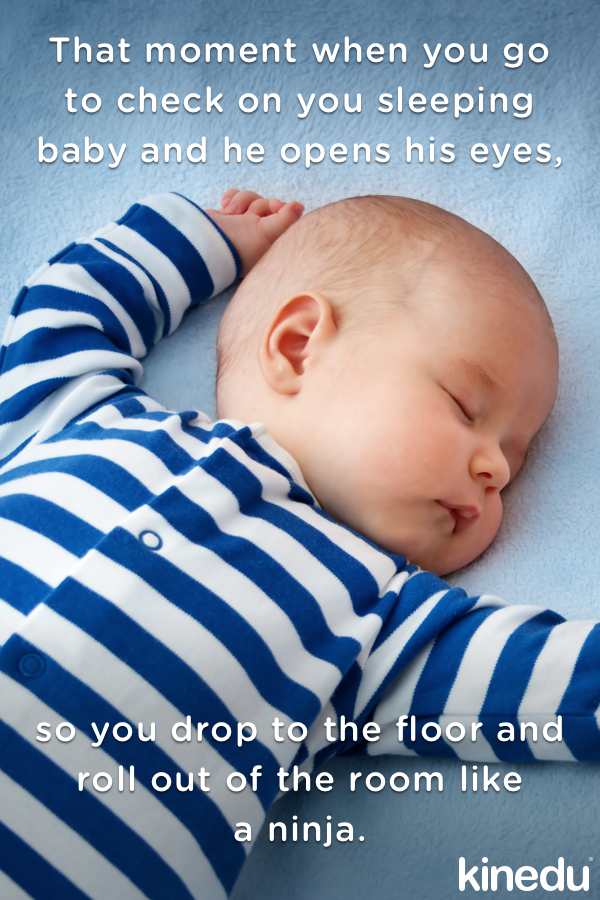 You might want to think about phasing out some of your baby’s sleep habits.
You might want to think about phasing out some of your baby’s sleep habits.
If you decide you need to see a professional for help with your baby’s sleep, take your chart with you.
If you’re concerned about your baby’s sleep, it’s a very good idea to see a child health professional for help. You could start by talking with your GP or child and family health nurse.
How baby sleep patterns affect grown-ups
Babies and grown-ups need sleep for wellbeing, but babies sleep differently from adults. Most parents of babies under six months of age get up in the night to feed and settle their babies. For many, this keeps going after six months.
Some parents are OK with getting up a lot at night as long as they have enough support and they can catch up on sleep at other times. For others, getting up in the night over the long term has a serious effect on them and their family lives.
The quality of your sleep can affect your health and your mood. Being exhausted can make it hard to give your baby positive attention during the day.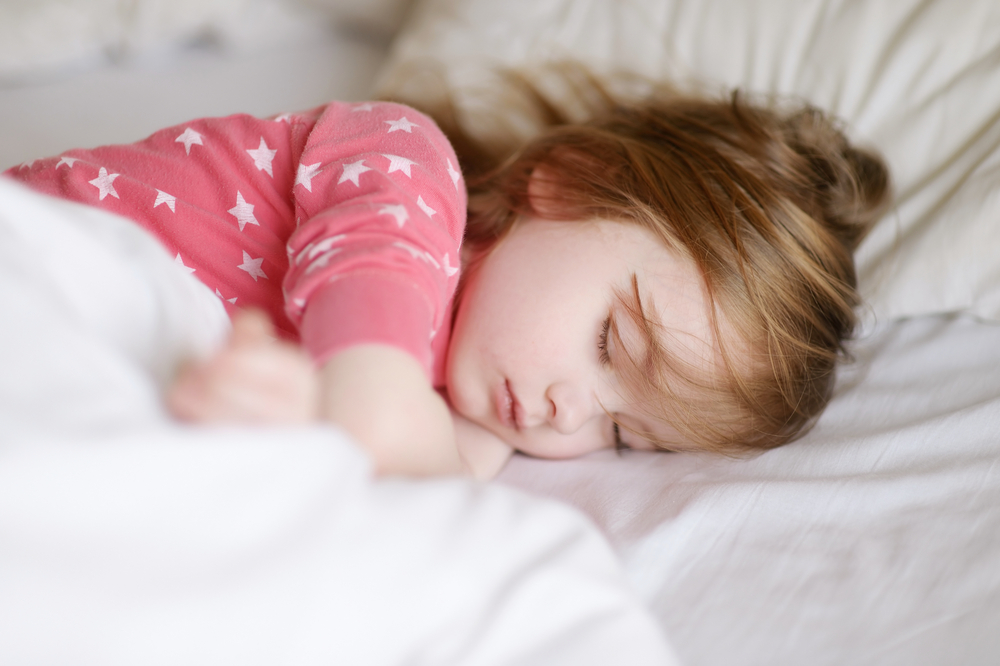 And your relationship with your baby and the time and attention you give baby during the day can affect the quality and quantity of baby’s sleep.
And your relationship with your baby and the time and attention you give baby during the day can affect the quality and quantity of baby’s sleep.
So it’s important that you get some help if you’re not getting enough sleep. You could start by asking family or friends for help. And if you feel that lack of sleep is affecting you mentally or emotionally, it’s a very good idea to talk with your GP or another health professional.
There’s a strong link between baby sleep difficulties and symptoms of postnatal depression in women and postnatal depression in men. But the link isn’t there if parents of babies with sleep difficulties are getting enough sleep themselves.
Languages other than English
- Arabic (PDF: 471kb)
- Dari (PDF: 469kb)
- Karen (PDF: 298kb)
- Persian (PDF: 420kb)
- Simplified Chinese (PDF: 502kb)
- Vietnamese (PDF: 324kb)
Healthy Sleep Habits for Babies and Toddlers
Nationwide Children’s Hospital
Sleep is important at all ages.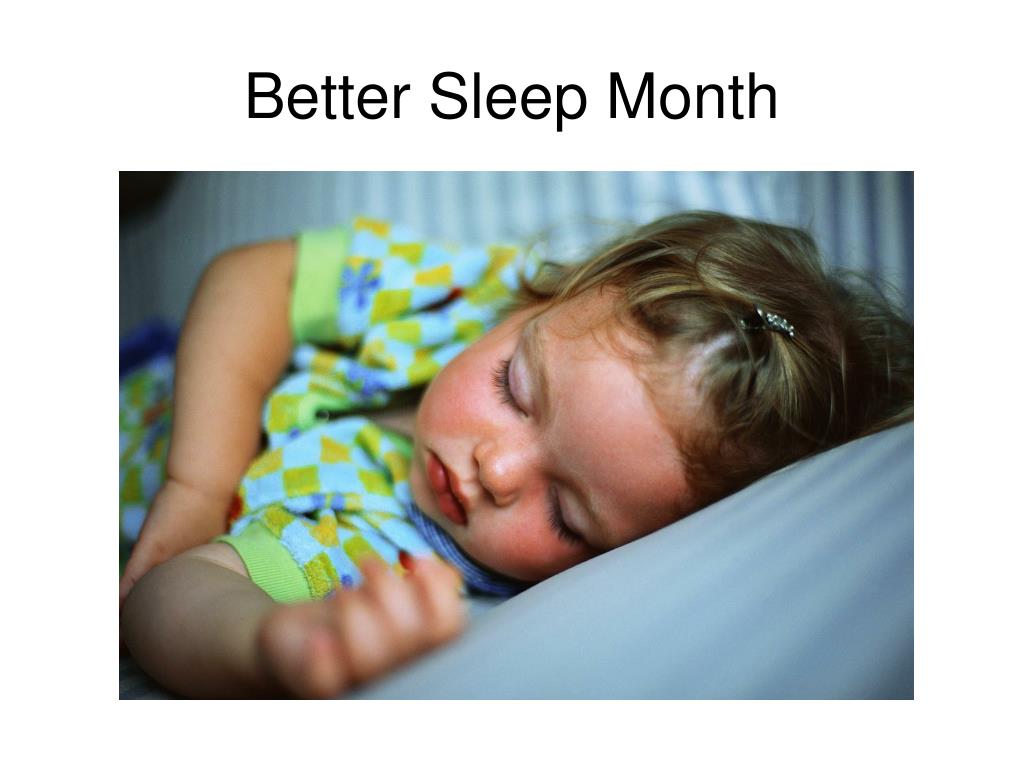 Newborns do not know day from night, so they sleep and wake up at all times. Toddler sleep may vary too. This can be hard for parents.
Newborns do not know day from night, so they sleep and wake up at all times. Toddler sleep may vary too. This can be hard for parents.
Help Your Child Sleep Better
- Feed your baby right before bedtime so they are not hungry when you put them in their crib.
- Put your child in their crib when they are sleepy but not yet asleep. This lets them learn to fall asleep on their
- Always put your baby in their crib on their back. Do this until they are 1 year old (Picture 1).
- Have a regular sleep schedule and a nighttime routine.
- Your child should go to sleep at the same time each night.
- Nighttime routines can include feeding, bathing, stories, soft music, etc.
- You can give your baby a pacifier while they sleep.
- A pacifier may lower the risk of sudden unexplained infant death syndrome (SUIDS).
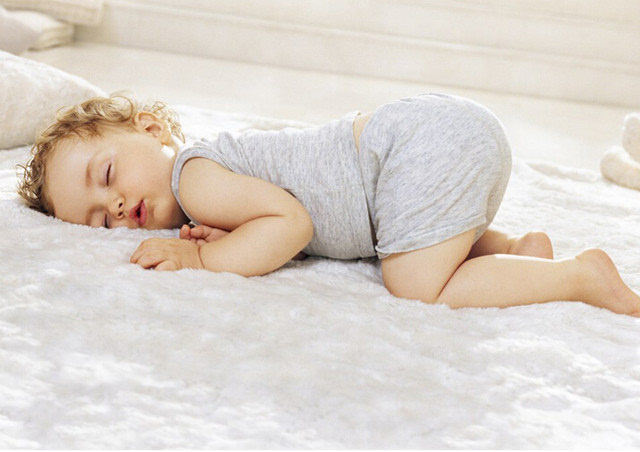
- If your baby is breastfeeding, be sure they can put their mouth around the nipple and latch on before starting a pacifier. This is usually around 3 to 4 weeks of age.
- A pacifier may lower the risk of sudden unexplained infant death syndrome (SUIDS).
- Do not put your child in their crib with a bottle or cup. Sleeping with milk or juice in their mouth can lead to tooth decay (cavities).
- Put your baby in their crib on their back for safety and so they learn to sleep alone.
- Safe sleep for infants up to 1 year of age also includes:
- Sharing a room but NOT a bed
- Nothing in the crib but your baby; no blankets, stuffed animals, or bumpers
- Safe sleep for infants up to 1 year of age also includes:
- Night feedings
- When babies are 2 times their birth weight they may not need to be fed at night.
- Ask your baby’s health care provider when to start cutting down night feedings.
- When your baby is about 6 months old, try this if they wake up and fuss at night.

- Check on them, but don’t let them see you. If you do, they will expect you to keep coming back when they fuss.
- At first, fussing lasts about 10 minutes. The next night, let fussing last a bit longer.
- For this to work, you must keep doing it over and over again the same way.
- Remember, you are helping your child learn to go back to sleep on their own.
- If this does not work after a few weeks, you can stop. Try again in 4 to 6 weeks.
Call Your Child’s Health Care Provider If:
- Sleep problems don’t go away after you follow these tips.
- Your child snores loudly.
- Your child has long pauses in their breathing when sleeping.
- You have any other questions or concerns.
Healthy Sleep Habits for Babies and Toddlers (PDF), Arabic (PDF), Nepali (PDF), Somali (PDF), Spanish (PDF)
HH-IV-117 Revised 3/22 Copyright 2011, Nationwide Children's Hospital
THE SCIENCE OF SLEEP - articles from the experts at the Mother and Child Clinic
Advice #1 Don't try to get your baby to sleep through the night.
Features of the nervous and digestive system of a child of the first year of life, especially if he is breastfed, do not allow him to sleep all night.
In the first months of life, he can sleep at night without waking up for no more than five hours. Usually the interval between feedings is from 2.5 to 5 hours. For a complete nutrition of the baby, his daytime sleep should not exceed 2-3 hours. Only after 6 months do babies mature physiologically to sleep for 6-8 hours without waking up.
Advice #2 Don't write off baby's restless behavior as "colic, teeth, growth spurts".
Parents often explain the crying and restlessness of the baby before and during sleep with colic, teeth, or the transition to a new stage of development. In fact, the reason in most cases lies elsewhere. Try to record all the intervals of sleep and wakefulness during the day, as well as the behavior of the child during these periods. Analyze whether the baby is “walking” - at this age it is extremely important not to exceed the norms for wakefulness, and also to sleep the required number of hours so that fatigue from lack of sleep does not accumulate.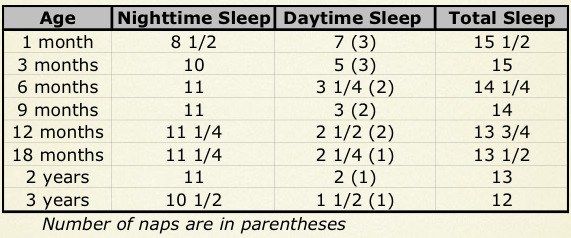 In addition, sometimes children are sensitive to errors in their mother's diet. Observe, change those factors that disturb the baby, and the child will probably sleep better.
In addition, sometimes children are sensitive to errors in their mother's diet. Observe, change those factors that disturb the baby, and the child will probably sleep better.
Tip #3 Don't let your child get tired.
It is important for a mother to learn to recognize the first signs of fatigue and “catch” these moments in time to put the baby to bed.
Tip #4 Set up a sleep ritual.
The rhythm of life in the city, unfortunately, implies that in the evening, when it is time for the child to go to bed, the whole family finally gathers at home after work, the baby’s emotions “go off scale”, albeit positive ones. It is important to adjust the child's regimen to the routine in the family, so that in the evening a quiet calm atmosphere is maintained in the house and the set time for falling asleep is observed. The ritual can be as follows: after bathing, give the baby a light relaxing massage, feed, turn on white noise or sing a lullaby, put your favorite soft toy next to it, and put the baby to bed. The ritual of repetitive actions will set the child up for sleep and help form the right habit.
The ritual of repetitive actions will set the child up for sleep and help form the right habit.
Lack of sleep can lead to chronic fatigue and disruption of the child's nervous system. Scientific studies show that children who sleep less than the norm for their age have an increased risk of hyperactivity and attention deficit disorder .
Advice #5 Try to adjust the sleep time to the child's biological rhythms.
Baby's biorhythms are programmed for daylight hours, that is, for early bedtime and early rise. As practice shows, children adjust to daylight hours, and morning awakening has almost no effect on going to bed. So basically the kids wake up between 6.00-8.00. Sleep experts recommend that babies, especially those older than 4 months, be put to bed between 19until 9 pm (in summer, when it gets dark later, you need to darken the room with curtains). So you can avoid fatigue and lack of sleep. To re-arrange your baby for early bedtime, move your bedtime 15 minutes earlier each day.
Tip #6 Get outside more.
Many children sleep much better outside in a stroller. There are children who sleep little and restlessly at home, and sleep soundly for hours in a stroller. This is normal, so stock up on audiobooks and a thermos of tea and go out on your "distance" in the park.
Tip #7 Don't try to introduce complementary foods early for a good night's sleep.
This can backfire as the baby's immature digestive system is not ready to digest "adult" food.
Tip #8 Sing lullabies to your baby.
Even if it seems to you that you are deprived of vocal abilities, sing to your child. Psychologists say that the mother's voice and her heartbeat are the main soothing sounds for the baby. Studies of infants' responses to music have shown that because infants' hearts beat faster than adults, they enjoy the faster rhythm of musical compositions. They also prefer female vocals and high timbre.
Tip #9 Create all the conditions in the bedroom.
Let the very atmosphere in the room set you up for relaxation. Ventilate it well before going to bed, and also darken it with curtains and try to ensure silence.
Tip #10 Cultivate good habits.
Try not to let the baby fall asleep on the breast, so that from the very beginning he will separate feeding and sleep. Place your baby in your crib regularly so that he gets used to having his own place to sleep. It’s good if he regularly spends some part of the night at his place.
Strictly follow the age norms of sleep and wakefulness - these are the main conditions for sound sleep, which means good mood and proper development of the baby.
Tips
pediatrician
Svetlana
Vladimirovna
Petina, Chief
doctor of the children's center of the clinic "Mother
and child" Kuntsevo
1.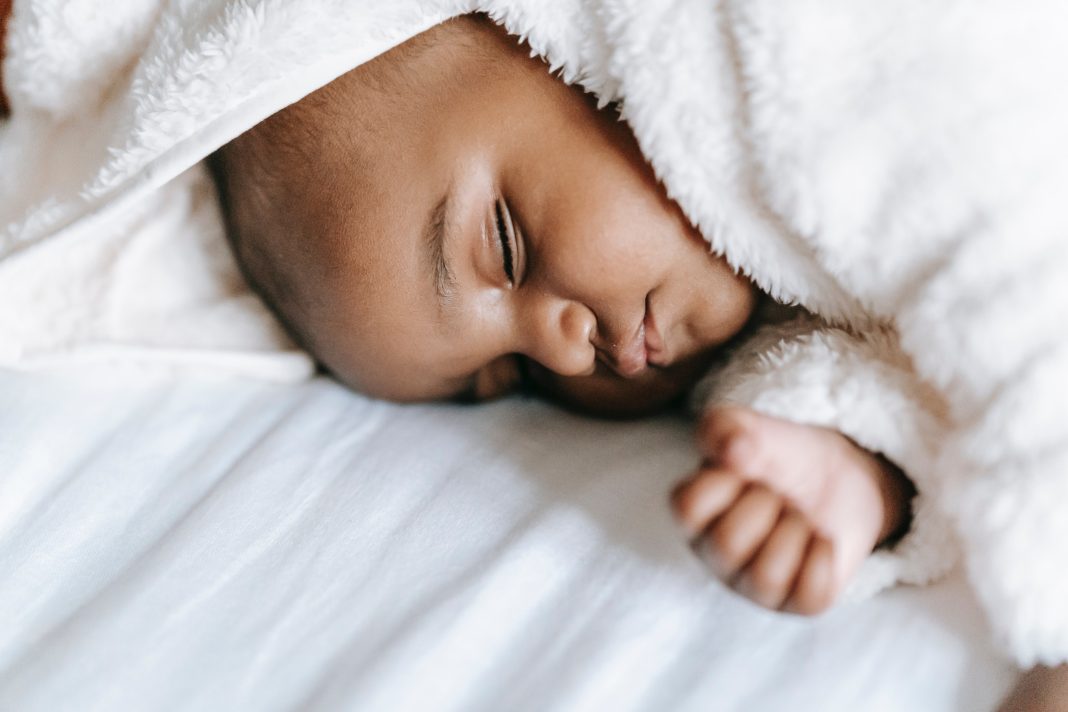 Consider your child's needs
Consider your child's needs
Many babies sleep well
after bathing,
however, there are babies,
on whom a bath,
even with the addition of relaxing
herbs, acts,
on the contrary, exciting. Be guided by your own
child - if
after a bath his sleep
as if by hand,
postpone bathing
in the morning or afternoon.
2. Consult physicians
If your child
is not enough and restless
sleeps, then it is worth it to consult
with a pediatrician and a neurologist, as well as
, make the necessary examinations,
For example, ultrasound
brain,
To check
intracranial pressure. Doctors will evaluate
psychosomatic
baby status and
his psychomotor
development.
3.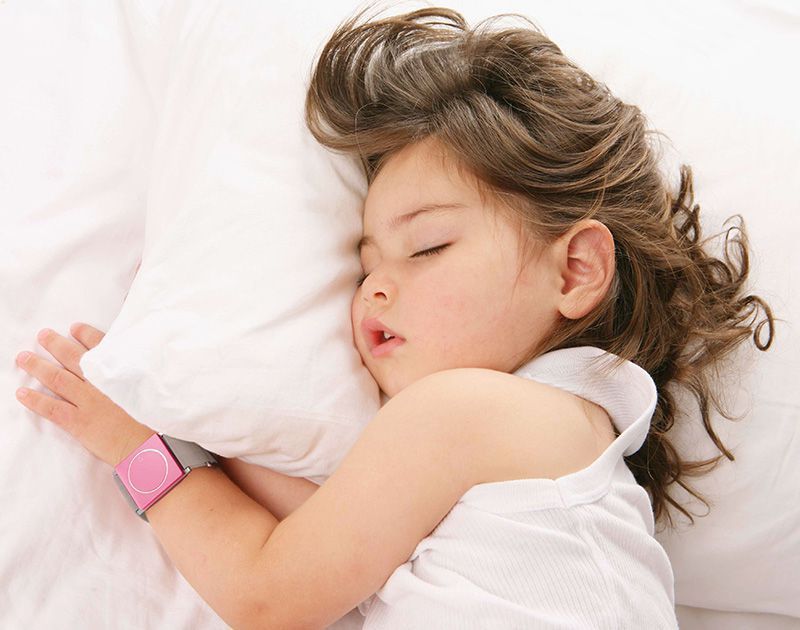 Prepare
Prepare
room
First month of life
child keep the temperature in the bedroom
24-25 °C. Then you can reduce this figure to 20-22 ° C.
Make sure that the cot is not standing in a
draft, do not turn on the air conditioner.
Mattress choose
rigid, with natural filling
coconut fiber
.
Family Tree - On the bridge of sleep: how to teach a baby to fall asleep quickly and without tears
A newborn does not have a daily routine. How this regime develops depends not only on the temperament and physiology of the infant, but also on the actions of his parents. The science of healthy baby sleep is for observant and patient moms and dads, but the reward is high: a happy, well-developing baby and a calm, well-established family life.
Serious business
Sleep should be respected and appreciated. This is a period that compensates for the wakefulness phase, with its emotional and physical stress, illness and fatigue. Sleep deprivation in an adult causes a 45% decline in productivity. Chronic lack of sleep is a common cause of depression, overeating (and, as a result, obesity), changes in behavior and temperament, and irritability. The most dangerous thing is that attention drops sharply: remember how many accidents happen due to the fault of drivers who fell asleep at the wheel.
This is a period that compensates for the wakefulness phase, with its emotional and physical stress, illness and fatigue. Sleep deprivation in an adult causes a 45% decline in productivity. Chronic lack of sleep is a common cause of depression, overeating (and, as a result, obesity), changes in behavior and temperament, and irritability. The most dangerous thing is that attention drops sharply: remember how many accidents happen due to the fault of drivers who fell asleep at the wheel.
Why should a child sleep? It is in a dream that it grows and develops (the secretion of growth hormone occurs in the first two hours after falling asleep), during this period his body receives rest and energy. Quality sleep means good memory and attention, protection of the psyche from overwork, strong immunity (children with good sleep get sick 30% less).
And on the other hand, according to the characteristics of behavior, one can assume a lack of sleep. If, for example, a child often hits walls and corners, cannot focus, is whiny and capricious - it is possible that he simply does not get enough sleep.
Children's sleep is so important that no amount of daytime early childhood education, visits from guests, adult activities, and changes in family life should interfere with it. This is no less important for well-being and health than nutrition and safety in general.
Regime subject
Although all children are different and the lifestyle in each family is individual, both kids and parents need a regime. The child feels better and develops more effectively in a predictable environment of repetitive cycles. We depend on biorhythms, and in the long term, such synchronization is necessary for the adaptation of a small person to society: at night we all sleep, during the day we are awake.
For a mother, the sleep and wakefulness of a child is a prevention of burnout and a nervous breakdown. So she has the opportunity to plan something, this creates a feeling of control over her life. Otherwise, when there is no regime, the whole family is involved in a series of endless hours of bedtime, early rises and late falling asleep exhaust everyone in the house, plus children's tears and tantrums before bedtime. It shouldn't be like that!
Already by three months you can develop a comfortable sleep-wake cycle, and from 9-10 months and live by the clock. In addition, as we grow older, the number of daytime sleep episodes decreases, and the main sleep occurs at night. Usually this is five hours without waking up for night feedings. But in order to build such a schedule, it is important to learn how to get into the so-called sleep window.
Window of Opportunity
Children's sleep experts have come to the conclusion that the best way to organize a routine is to observe how your baby behaves during the day. The secret is to "catch" the moment when he just started to get tired, but still in a good mood. In infants, the processes of mental excitation proceed more intensively than inhibition - therefore it is very important to start laying down at a time when natural activity is waning. Leave business - and lead our sleepyhead along the bridge of sleep.
Signs of tiredness: rubbing eyes, yawning, acting up, spoiling mood, losing interest in people and play, turning away, becoming less mobile, tugging at his ear, looking sleepy.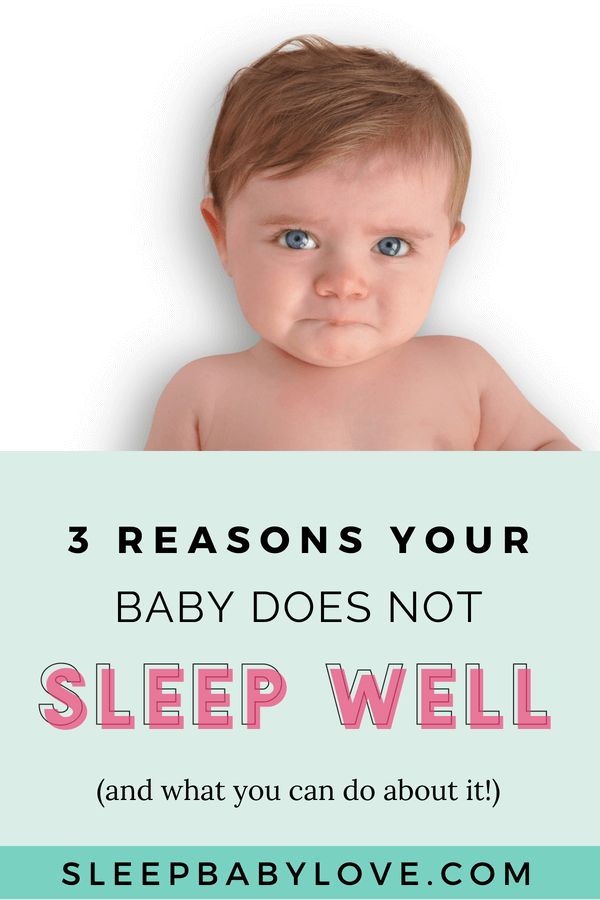 Sometimes the first yawn and tearfulness means you've missed the first stage.
Sometimes the first yawn and tearfulness means you've missed the first stage.
If these first signs of approaching drowsiness are not caught, the child may become overexcited, act up, cry, not breastfeed, refuse to fall asleep. And in this state, putting him to sleep becomes a hundred times more difficult! If he "overdoes", he may have a second wind - and he is again ready to play and communicate. But severe fatigue will sooner or later make itself felt and can turn into tantrums and tears.
Bridge to Sleep lasts 20 minutes. At this point, parents should dim the lights and sounds in the room, reduce activity, create a calm background. Good sleep is possible only where it is quiet, dark, neither hot nor cold, where the air is humid and clean.
On average, the distribution of phases of wakefulness and sleep by months is as follows:
Dancing with tambourines
Is it necessary to rock the child? Is it possible to teach a child to fall asleep on his own? How long should the laying ritual last?
It is generally accepted that the presence of an infant in the mother's womb teaches him to rock.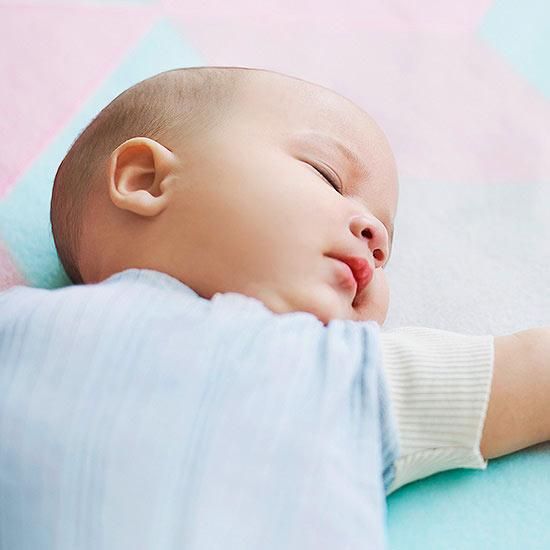 But if this pattern is not maintained immediately after birth, then attachment to it will not form! A lot of children who have not been rocked fall asleep calmly and without any shaking and lulling. Only from stroking, for example. Or from the sound of water, or from my mother's voice.
But if this pattern is not maintained immediately after birth, then attachment to it will not form! A lot of children who have not been rocked fall asleep calmly and without any shaking and lulling. Only from stroking, for example. Or from the sound of water, or from my mother's voice.
A bedtime ritual is essential, but it doesn't have to be rocking in your arms or in a wheelchair. The ritual can be individual, carried out once and ideally last no more than ten minutes. It marks the beginning of sleep, introduces into it, relaxes, saturates the baby with attention, contact and love.
It is important that the child falls asleep where he will sleep, because his consciousness fixes the circumstances of falling asleep, and upon awakening (not final, intermediate, half asleep) he will not understand where he was transferred and where he ended up. The whole dream will instantly disappear - and you will have to put the disturbed baby to bed again. Such associations associated with sleep begin to form from the age of four months.
Rules for co-sleeping
There is no consensus about the benefits and harms of co-sleeping - all children are different, all families are not alike. And even the harsh intentions of parents (to sleep or not to sleep with a child) sometimes break into reality, which makes its own adjustments. With experience comes flexibility in this (and not only this) matter. The main criterion is that everyone gets enough sleep.
However, experts agree on one thing: to avoid an accident, it is important to follow a few rules for co-sleeping. Older children or animals should not sleep in the crib with the baby. The mother should not wear long jewelry, her clothes should not have straps or ribbons longer than 20 cm. Parents should not use alcohol, drugs, sedatives or sleeping pills, be overweight or be extremely tired (sleep too hard). If dad or mom feel that they are literally falling asleep, the child should be put separately.
Inspection of the crib
If you sleep separately, you need to prepare the crib.